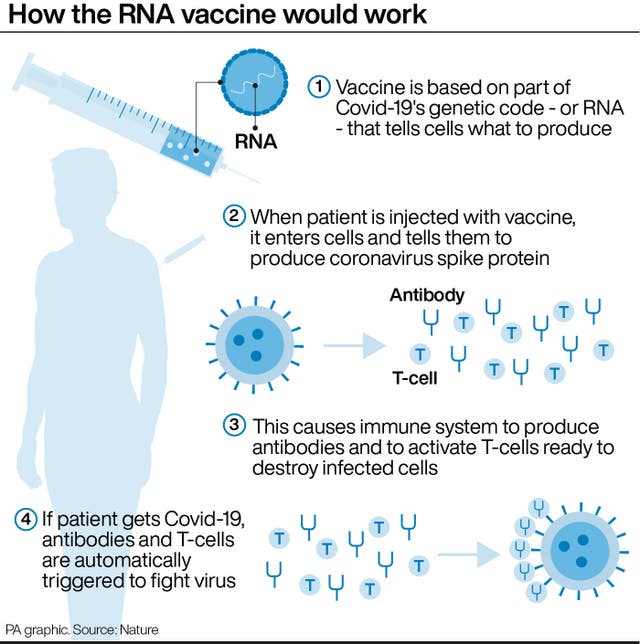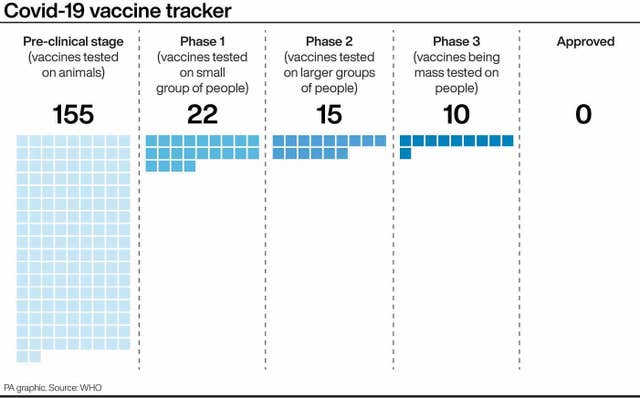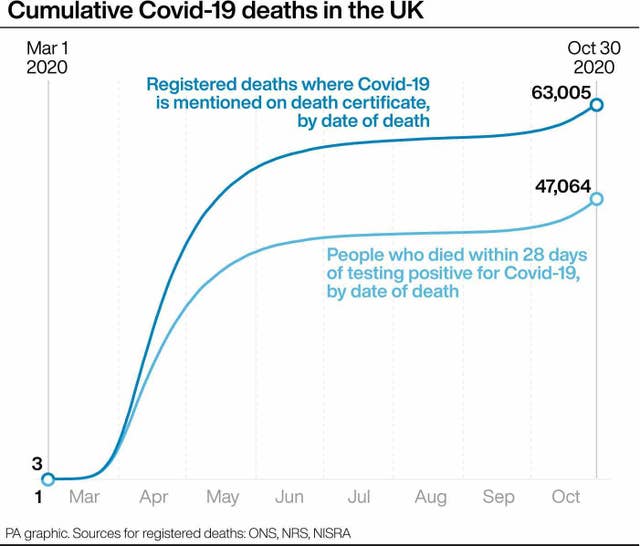England’s deputy chief medical officer has said he would be “at the front of the queue” if he could to show that Covid-19 jabs are safe, as he offered to work weekends and evenings to vaccinate people himself.
Professor Jonathan Van-Tam said Britain is poised for the “most important vaccination programme we’ve done for decades” and has even told his own mother to be ready to get her vaccine.
Asked whether high-profile Government figures such as himself or the Prime Minister should take a vaccine first to prove to the public it is safe, Prof Van-Tam said he would be “at the front of the queue” if he was allowed.
“If I could, rightly and morally, be at the very front of the queue, then I would do so because I absolutely trust the judgment of the MHRA (Medicines and Healthcare products Regulatory Agency) on safety and efficacy,” he said.
“But that clearly isn’t right; we have to target the most highest risk individuals in society and that is how it should be in terms of our system.
“If I could be at the front of the queue, then I would be.
“I think the ‘mum test’ is very important here.
“My mum is 78, she will be 79 shortly, and I have already said to her ‘Mum, make sure when you are called you are ready, be ready to take this up, this is really important for you because of your age’.”

“This is one of the most important, if not the most important, vaccination programme we’ve done for decades,” he said.
“And from that perspective, I don’t mind telling you, I’ve had the conversation at home. I I can help with this in some evenings and weekends, doing some extra vaccinations sessions myself, then I’m going to.
“That’s a given if I can get on the list and be useful.”
Prof Van-Tam was unable to say whether lives would be back to normal by Easter thanks to vaccines, adding that it is not yet clear if they prevent onward transmission of the virus or just stop individuals falling ill.
But he said: “I think I can tell you that I’m very hopeful that, over time, vaccines will make a very important difference to how we have to live with Covid-19 in the long run.”
Offering reassurance on the Pfizer/BioNTech vaccine, of which the Government has ordered 40 million doses, Prof Van-Tam said he is confident that the NHS can “move at pace to keep up with the volumes” that are supplied by the pharmaceutical firm.
Earlier, Professor Robin Shattock, from Imperial College London, said the UK needs “a toolbox as full as possible” of different vaccines and added that several may come on stream shortly.
He said he is “really hopeful” that Oxford University and AstraZeneca’s vaccine will report its results soon, with others following shortly afterwards.
He told BBC Breakfast: “The AstraZeneca/Oxford vaccine, we anticipate that there may be a result anytime soon, before Christmas.
“And there are a number of other vaccines that may come through shortly after that.
“All these vaccines will have different levels of immunity and may be useful for different populations, so we need as many vaccines as possible to be able to combat this pandemic, and make them globally available.”

Responding to Pfzer’s news, Prof Shattock said: “It’s still early but this the first evidence this is a vaccine-preventable disease and that is a big boon to everybody working on vaccines.”
Asked at which stage the Imperial vaccine is at, Prof Shattock said his team was selecting the final dose next month and then would go into larger clinical trials in the UK, with the potential of seeking regulatory approval next summer.
Asked how scientists know whether vaccines are safe for people with underlying health conditions, Prof Shattock said their safety in these groups will be closely monitored.
“That’s another reason why we need a range of vaccines, because some vaccines may work better in people with different underlying conditions,” he said.
“It’s important to have a toolbox as full as possible, so we can make sure there is something that works for everybody.”

He said: “The current vaccine, the Pfizer vaccine, has been studied in 43,000 individuals, so we know it’s safe in terms of it doesn’t cause any acute problems.
“Long-term side-effects will be studied for the next two years. I think they are likely to be rare, but it’s something that will be followed very carefully.
“It’s always worth putting it in context – the long-term side-effects of Covid-19 are way more dramatic than anything that we get from a vaccine.
“When you’re balancing that risk, obviously it’s going to prevent you from getting Covid-19, and it’s going to prevent you from all the risks of long Covid, or serious illness.
“That equation is very clear in my mind. Vaccines are exceptionally safe medicines and they prevent really serious disease.”
Elsewhere, GPs have said they will need support to deliver the Covid-19 vaccination programme as health bosses acknowledged that some other family doctor services may need to be scaled back.
Professor Martin Marshall, chairman of the Royal College of GPs, said existing pressures mean family doctors will need help from colleagues to manage the vaccination programme, which is set to be ready to roll out from December 1.
NHS England has told the country’s 1,250 primary care networks to designate a single practice to administer vaccines in their area capable of delivering vaccines from 8am to 8pm, including on weekends and bank holidays if needed.
But in a letter to GPs, Dr Nikki Kanani, NHS England’s medical director for primary care, has acknowledged that doctors may have to prioritise what they do.






